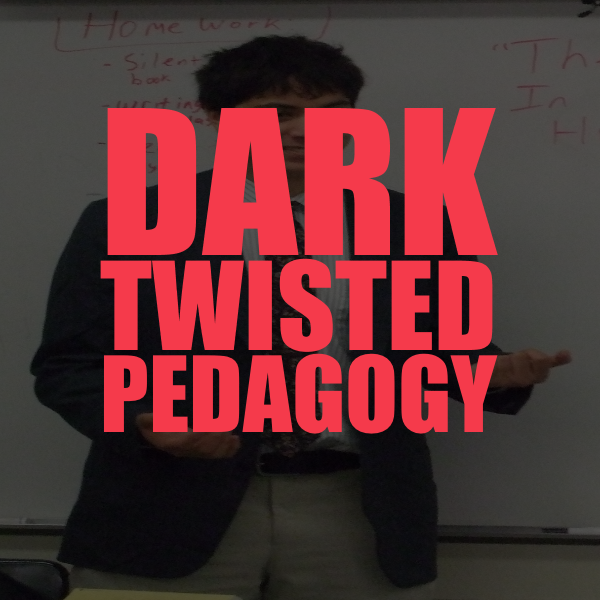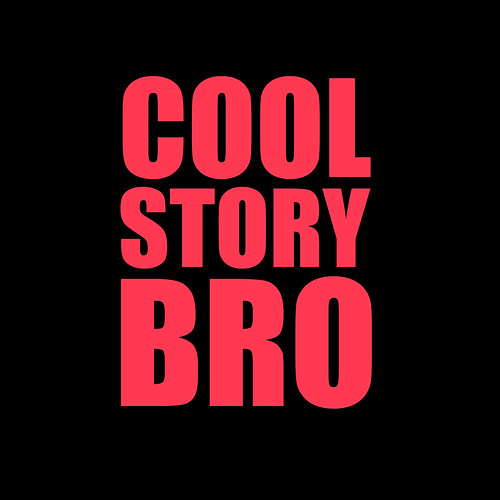
I can’t say I would have anything entirely surprising in a top albums of 2010 list. You can tell when an album stays with you when your favorite song skips from one track to another until you-one moment-realize that you’ve had secret trysts with all of them; Lisbon and This is Happening both hold this distinction for me. Of these, Lisbon gets the slight edge over LCD Soundsystem if only for the stunning one two sucker punch of the closing tracks.
However, as much as these were my favorite releases, I feel that the year was one for Kanye. His album was justly heralded by critics and I think West and Co. masterfully marketed it in a way that educators should be paying close attention to.
For the greater part of 2010, Kanye West has been on my cultural radar. He’s done this deliberately and he’s done it in a way that’s made his presence, his performances, and his music something of a conversation with friends, students, and now—dear reader—with you.
By the time the album leaked, weeks before it’s official release, its music was anything but surprising – Kanye had already leaked the majority of the tracks as free downloads over the months – one song a week, featured others in a short film, and even given away the album’s bonus track. Deliberately, I was privy to Kanye’s thoughts, his music, and his oh-so-famous rants.
Musically, the album is an assemblage of the best of what Kanye has to offer without ever seeming like pastiche. The album’s two-track finale is the surprising highlight for me and I’m glad to see the playful exchange with Gil Scott-Heron that now continues across three albums.
Just as the album was finally released and the G.O.O.D. Friday series concluded, I finished reading New Literacies by Lankshear and Knobel. The book reinforced a bevy of literature I’d been reading through for my own research. Near the end, the authors discuss the internet proliferation of “memes” and what they can mean in terms of education.
Kanye’s every step in releasing the album, from ludicrous twitter messages to on-air blowups to banned album artwork meant that there was not a day that I couldn’t catch up with the latest in the Kanye-verse. In all of these Kanye has evolved the hip-hop mixtape to its proper 2.0 configuration: it is, too, an always-on amalgam of music, personality, and hype.
[Queue hip-hop for dummies paragraph:] The role of mixtapes is one that (as far as rap is concerned) dates back to the early days of hip-hop in the late ‘70s. Splicing together popular rap verses with unreleased hip-hop beats, mixtapes were underground commodities traded and sold by the aficionados within a somewhat exclusive subculture. Though it’s been years since mixtapes have actually been distributed as cassettes, the idea is still the same; otherwise unreleased or un-cleared samples are released non-commercially. Transitioning from tapes to CDs and now to direct Internet downloads, mixtapes have lately been co-opted by mainstream rappers to sustain interest between album releases. Lil’ Wayne, in particular, has benefited from a plethora of mix tape releases that have helped make him a popular rapper with both mainstream radio listeners and with online media consumers. No longer are mixtapes simply an extension of the listening experience for rap fans. Instead, they act as previews and major marketing ploys for rapper artists. Additionally, they may signal an artist’s credibility with rap fans.
But this is where the mixtape ends and Kanye deconstructs it; instead of the mishmash of 40-70 minutes of free music, Kanye slowly strings along track after track over months. Enticing the listener, responding and changing music as responses are blogged and status-updated. The silly mashup of unexpected artists that is typically reserved for mixtapes becomes a centerpiece for the album: indie darling Bon Iver’s lilting voice is paired earnestly with the hip-hop/club encounter on “Lost in the World”.
The pervasive nature of Kanye’s approach to marketing My Beautiful Dark Twisted Fantasy is something educators can lift. How can we deconstruct classroom pedagogy to move beyond traditional application of emergent technologies? Is it really the best we can do to simply duplicate textbooks and textbook practices when equipping students with iPads and mobile devices? Screen reduced to nothing more than digital page? And what about the continuous nature of Kanye’s approach? His persistence and personality are what helped transfer knowledge, interest, and passion for his work. How can this 2.0 approach be adopted for classroom use?

Pingback: The American Crawl : iDefer
Pingback: The American Crawl : Chris Macho and “Beautiful Dark Twisted Pedagogy”
Pingback: The Time Is Right for Libraries to Embrace Participatory Culture | SLJ Summit 2013 | School Library Journal